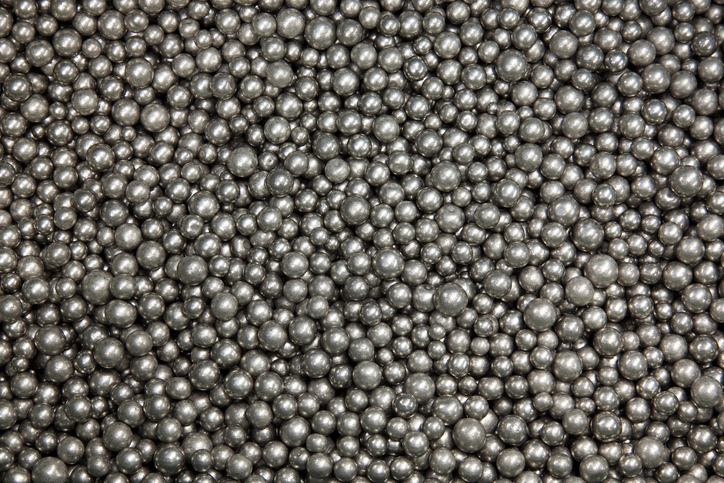
Nickel (chemical formula: Ni(CO)4), is an extremely toxic and highly volatile liquid. It is miscible (can be mixed) with organic solvents, as well as being slightly soluble in water.
Nickel carbonyl is mainly used as an intermediate in the production of high purity nickel powder. This process, known as the Mond process, was commercially common prior to the 20th century before it was discovered to be incredibly toxic and volatile. Nickel carbonyl is also used in continuous nickel coatings on steel and other metals.

The routes of exposure for nickel carbonyl include inhalation, ingestion and skin and eye contact.
Inhalation of nickel carbonyl may produce severely toxic effects that can even be lethal. Regular exposure to the substance may result in “metal fume fever”, which may affect the upper respiratory tract in a similar way to influenza. Symptoms of inhalation include headache, breathing problems, diarrhoea, shock, fever, weakness, nausea, vomiting, thirst, excessive urination, shortness of breath and fatigue. Exposure to 30 ppm (parts per million) over half an hour is the estimated lethal dose for humans.
Although the chemical is not absorbed well through ingestion, it is still expected to be extremely damaging to the health of the individual. Animal experiments suggest ingesting less than 5 grams of nickel carbonyl may be fatal. For non lethal amounts, most of the nickel will leave your body (through urine) in around 4-5 days.
Skin contact with the chemical is not thought to be a skin irritant, however temporary discomfort may result from prolonged exposure. Other harmful effects may result upon entry into the bloodstream through open cuts or wounds.
Direct eye contact with nickel may produce tearing and redness. Damage to the blood vessels and nerves of the eye, vision loss and unconsciousness may also occur. All patients who experienced more than 12 hours of exposure, experienced bleeding from the retina.
If inhaled, remove the patient from the contaminated area to the nearest fresh air source and monitor their breathing. If the patient is not breathing and you are qualified to do so, perform CPR, preferably with a bag-valve mask device. Seek medical attention immediately.
If swallowed, urgent hospital treatment is likely to be required. In the meantime, personnel qualified in first-aid should treat and observe the patient. If medical attention is more than 15 minutes away, inducing vomiting is recommended with the patient leaned forward or on their left side to maintain open airways and prevent aspiration.
If skin exposure occurs, immediately remove all contaminated clothing, footwear and accessories and flush the affected area with plenty of soap and water. Seek medical attention in the event of irritation.
If exposed to the eyes, flush the eyes out immediately with fresh running water for at least 15 minutes, remembering to wash under the eyelids. Removal of contact lenses should only be done by a skilled individual. Seek medical attention immediately.
Emergency showers and eyewash fountains should be accessible near the area of the potential exposure to the chemical and adequate ventilation should be available (local exhaust should be installed if necessary).
The PPE recommended when handling nickel carbonyl includes safety glasses with side shields, chemical goggles, gloves (e.g. PVC), half-face/full face filter respirators, safety footwear/gumboots and protective suits. Contaminated leather items including shoes, belts and watch bands should be removed and destroyed.
Nickel carbonyl can be extremely toxic and harmful when exposure occurs. Ensure you protect yourself and your coworkers by referring to the SDS prior to handling. If you require SDS Management Software, contact us at sa***@*******ch.net to see how we can help.